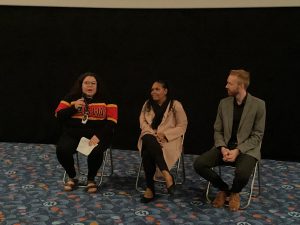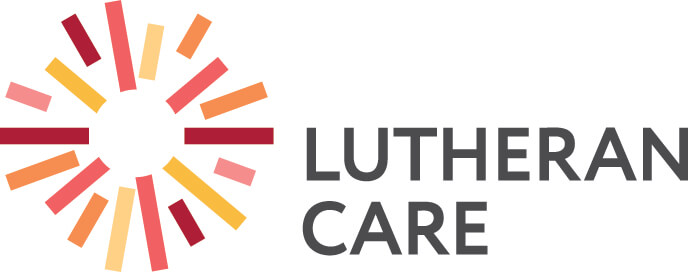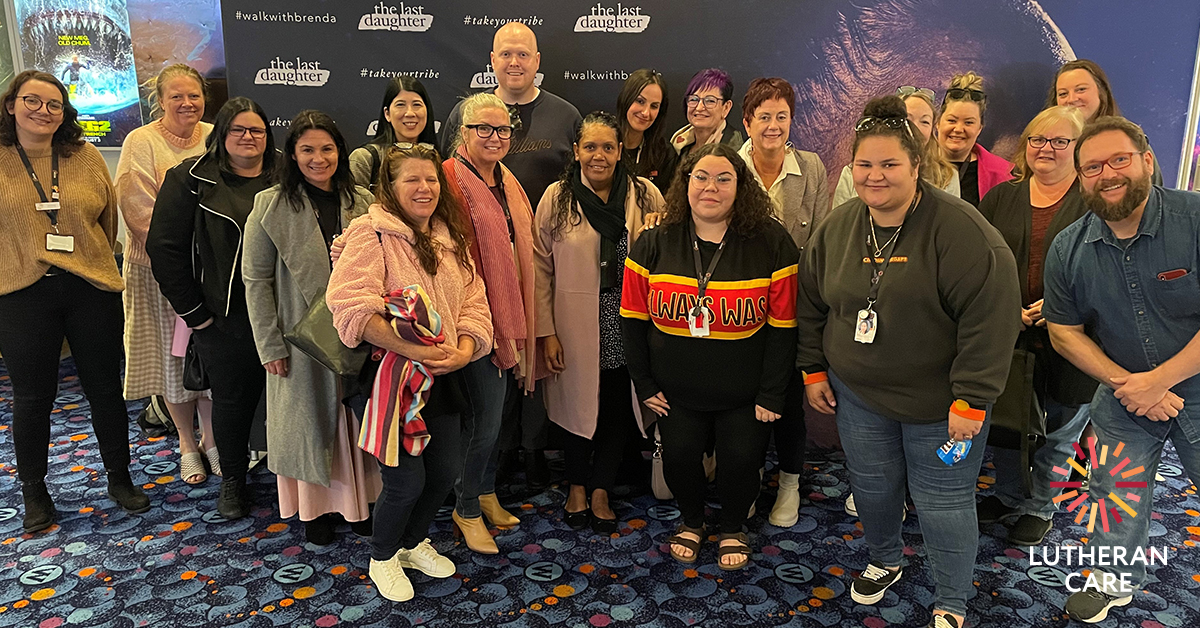Last week, as the nation celebrated the final day of 2023 National Reconciliation Week, Lutheran Care’s foster care team and several foster carers were fortunate to attend a special screening of The Last Daughter, a new documentary that features a true story of love, loss and reconnection.
Organised by Lutheran Care’s Aboriginal Cultural Worker Shaylem, the event also featured a special live Q&A with the film’s Director Brenda Matthews, whose powerful story is shared in the film.
With the film to be released Australia-wide on June 15, we urge every Australian family to make seeing and feeling this story a priority.
We also recommend you bring your tissues as you experience this beautifully told story about love, loss, healing and connection. A heartfelt reflection of the larger hope for Australia in coming together and sharing our history in moving forward.
Shaylem said the documentary is an amazing exploration of Aboriginal resilience and growth and encouraged people to watch the film.
“Brenda’s story is one that everyone needs to hear,” Shaylem said.
“We need to reconcile our past and our traumas in order to move forward. It’s a shared journey that we must all take in order to achieve an equitable society. Our past influences our future and Brenda’s story affirms this.”

Premiering to sold-out audiences at the Adelaide Film Festival in October last year, and subsequently receiving the Audience Award, the film was shot across location in Queensland, New South Wales and South Australia. The Last Daughter focuses on Brenda’s journey to uncover the truth about her past and to reconcile the two sides of her family.
As with many First Nations people, Brenda’s story is one that involves walking in two worlds. For Brenda, she explains that some of her first memories were growing up in a loving white foster family, before being returned to her caring and loving Aboriginal family. Decades later, she feels disconnected from both halves of her life. The traumas of her past do not lie quietly buried as she goes searching for the foster family with whom she had lost all contact.
Along the way, Brenda uncovers long-buried secrets, government lies and the possibility for deeper connections to family and culture.
“We all have a story that connects us to this country, “Brenda says.
“In uncovering my own story, I found healing and a place to belong.
“We can’t change the past, nor do I want others to feel guilty for what has happened. I share this story out of love and forgiveness, which my mother and father have taught me from both sides.”
The Last Daughter is brought to life on screen through collaboration between Aboriginal and non-Aboriginal creatives. Brenda acknowledges that the film isn’t about a change of plans, it’s about a change of heart. From hurting to healing, rejection to belonging and from disconnection to truth – it’s time for all Australians to join this story of truth telling.
Brenda has had others reach out to her to share their similar experiences and hopes that one day her truth telling story can help non Aboriginal Australians understand the continuing impact of the Nation’s history and for First Nations people to heal from their own journey in their story.
Hearing recounts from interviews that underpin the film with Brenda’s husband (Mark), Brenda’s white foster parents (Mac and Connie), and Brenda’s Aboriginal mother (Nana Brenda), those in the theatre last Friday felt this story deeply.
During the Q&A’s after the film, some of the audience voiced (albeit quivering with the occasional sniffle) their heartfelt gratitude to Brenda for allowing the audience to experience a raw glimpse into her and her family’s story, and for her strength in sharing it with the world.
“For so long our story has been told by someone else,” Brenda adds.
“It’s time we all started to lead from our hearts and not our heads – to work out how we all fit into the circle of this country together. Walking together and sharing the story together.”
“Knowledge isn’t power, it is responsibility.”
Lutheran Care walks alongside you Brenda and all First Nations people from across this country with gratitude and an open heart towards the creation of stronger and safer communities for every Australian to belong within.
The Last Daughter is in cinemas Australia-wide from June 15, with additional screening opportunities for schools, work places and other organisations. Find out where and when you can watch it here.
#WalkWithBrenda
There’s power in sharing stories and The Last Daughter is one that needs to be shared. “By taking your friends, family and community on this journey with you, we can amplify Brenda’s message of hope and healing, and create change together.
Whether it’s through a social media post, a personal message, hosting a screening, or simply talking about the film, each share creates a ripple effect that can inspire change. Remember, your voice has the power to influence those around you. So, invite your family and friends to discover, learn and grow with The Last Daughter.
Find out more about how you can take action here.

